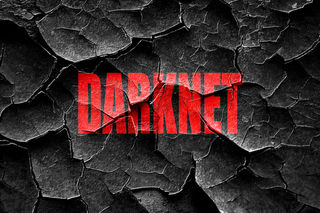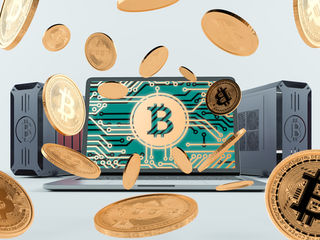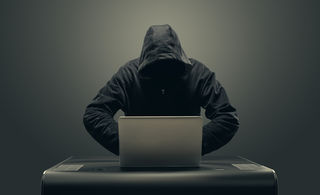
Teens can easily access the darknet and if they do they risk entering into a world of porn, drugs, fake ids, guns, and many other hidden dangers. This part of the Internet is a portal into a world in which identity ceases to exist.
What is the Darknet?
To understand the darknet, it’s best to review how the Internet is set up. First, think of the Internet as having three distinct layers of information. The first layer is the surface web. It’s the portion of the Internet that we use most of the time. It consists of common search engines such as Google, Bing, or Yahoo. We shop for products, use social media sites, and even play games on this part of the web. But, did you know that according to the Association of Interest Research Specialists, the surface web only makes up about 4% of what we see? The remaining 96% is comprised of the deep web and darknet.
The deep web is where private data such as governmental and legal documents, medical information and academic records can be found. Data on these sites are encrypted, so only authorized users can access the sensitive information. Simply, the deep web is the part of the Internet that isn’t accessible to standard search engines. These networks are usually maintained by a paid service. But beyond the deep web lies a host of hidden dangers that parents should be aware of - the darknet.
What Do Parents Need to Know About the Darknet?
The darknet isn’t hard to venture to. Although it takes some navigating, it doesn’t take a rocket scientist to figure out how to gain access. Inaccessible to standard browsers, the darknet uses anonymous networks such as TOR (The Onion Router, the most popular), I2P (Invisible Internet Project) or Freenet - to name a few. Teens would have to download the app, but programs like TOR can run off of a USB flash drive, and not the computer itself, leaving no trace of the program or browsing history.
The surface net is loaded with information on how to download and install these networks. There are even forums providing beginners with step-by-step instructions. So, with just a few clicks, teens can go to sites such as Hidden Wiki, the Uncensored Hidden Wiki, and many, many other dangerous sites. On these sites, youth will find child pornography, weapons, fake documents, drugs and even recruitment from terrorists. Now, proponents would want to point out that not all of what's on the darknet is bad. There are forums where people can openly express their opinions without censorship, and it provides privacy to those who don’t want companies or "big brother" collecting their information. But - it is not a part of the Internet that teens should explore.

When online, the darknet resembles the surface web’s shopping sites with product descriptions, photos and buyer and seller feedback. As for drugs and other merchandise, the darknet not only connects teens with suppliers, but it also allows them to pay for their products with payment networks like Bitcoin. Bitcoin is an open peer-to-peer financial network that uses untraceable digital currency. Although Bitcoins are used on the darknet, they are also legit in purchasing items, like video games. It’s super easy for teens to set up a Bitcoin system. On the darknet, once a transaction has been processed, merchants cleverly conceal, package and ship the product out using everyday shipping services like the US Post Office, UPS or FedEx.
One of the darknet’s appealing factors is its ability to allow its users to remain anonymous by concealing all personal data including, identity, physical location, and websites visited. Everything is concealed and secured.

How Do Parents Know if Their Child is on the Darknet?
As a parent, how would you know if your teens ventured to the darknet? First, if teens are surfing the darknet, odds are they are pretty tech savvy and have done some research – which includes covering their tracks. If you see a program on the computer that you aren’t sure about - check it out. If you find a flash drive laying around and suspect that you're teen’s up to no good - see what’s on it.
Aside from parents uncovering activity, there are also some signs that could indicate being on the darknet.
Suspicious signs:
- Changing passwords, clearing browsing history, or installing new browsers.
- Suddenly using a flash drive more than a cloud storage.
- Using social media sites to interact with suspicious sites or users.
- Searching for information pertaining to the darknet, TOR, Freenet, I2P, or VPN (Virtual Private Network)
- Stealing money or making random online credit card purchases.
- Using a PO box to receive deliveries.
- Receiving shipment packages from unknown senders.
As for the last point, some of these deliveries may contain drugs. According to a study from Carnegie Mellon University, the darknet drug market is booming with over 1,000 sites to take money from teens and deliver drugs to their doorsteps. The study reported that darknet pharmacies bring in anywhere from $300,000 to $500,000 per day, with cannabis, ecstasy, cocaine and related products consistently accounting for 70% of online sales. As the seller remains anonymous, there is no way to know whether the drug is in its purest form. So, the product purchased may not be the product received.
The darknet isn’t for the novice and it’s no place for a teen. Parents, please speak with your teens about the dangers of the darknet. If teens are sneaking around and doing suspicious things online, then start monitoring the sites being visited. Also, if packages start arriving, look through them, as toys, games, books, etc. can easily conceal drugs. Make no mistake, many of the people who sale products on the darknet are focused on making money, and they don’t care whether that money comes from someone who is 55 or 15 years of age, plus the way the darknet operates, they’d never even know their age...
Article first appeared on Rehabs.com




